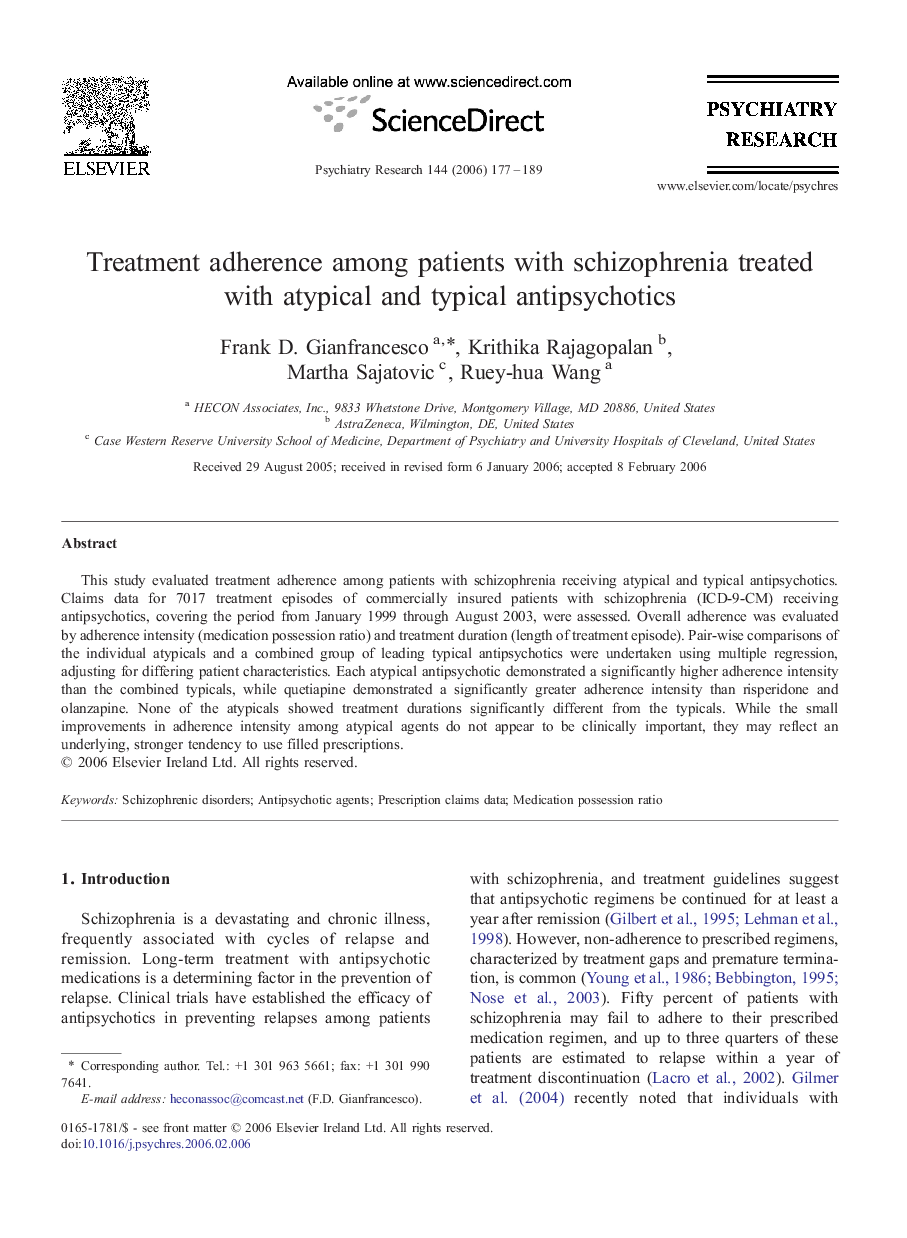| Article ID | Journal | Published Year | Pages | File Type |
|---|---|---|---|---|
| 332694 | Psychiatry Research | 2006 | 13 Pages |
This study evaluated treatment adherence among patients with schizophrenia receiving atypical and typical antipsychotics. Claims data for 7017 treatment episodes of commercially insured patients with schizophrenia (ICD-9-CM) receiving antipsychotics, covering the period from January 1999 through August 2003, were assessed. Overall adherence was evaluated by adherence intensity (medication possession ratio) and treatment duration (length of treatment episode). Pair-wise comparisons of the individual atypicals and a combined group of leading typical antipsychotics were undertaken using multiple regression, adjusting for differing patient characteristics. Each atypical antipsychotic demonstrated a significantly higher adherence intensity than the combined typicals, while quetiapine demonstrated a significantly greater adherence intensity than risperidone and olanzapine. None of the atypicals showed treatment durations significantly different from the typicals. While the small improvements in adherence intensity among atypical agents do not appear to be clinically important, they may reflect an underlying, stronger tendency to use filled prescriptions.
